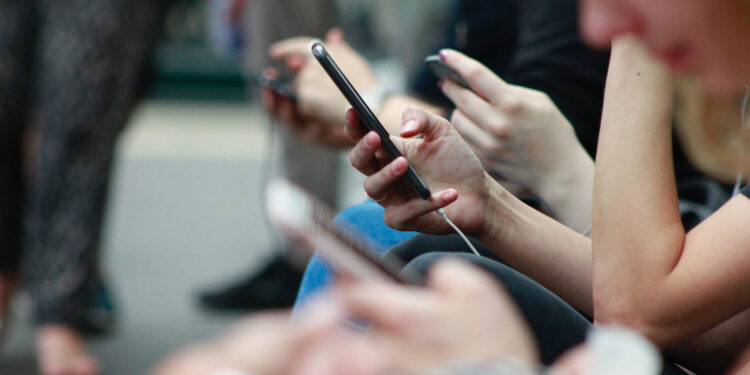Public Wi-Fi Security Risks – How You Can Avoid Them?

Picture yourself hanging out at your local public spot could be a café using free Wi-Fi to finish up some errands you couldn’t finalize on time due to your busy schedule. Sounds familiar? This is the typical scenario for most individuals out there. But are you aware that multiple threats are lurking in the background for using public Wi-Fi?
What is Public Wi-Fi?
Public Wi-Fi is found in popular public places like coffee shops, hotels, malls, restaurants, airports, among other places. It allows one to access the internet for free. Before using the free Wi-Fi, it would be wiser to seek services from Top VPN Services in the UK to be on the safer side since they got a hard-as-nails security system alongside top-notch streaming and speeds.
Below is a detailed look at some of the threats facing you.
Dangers of Using Public Wi-Fi
Experts believe that nearly a quarter of the world’s public Wi-Fi hotspots do not use any form of encryption. To ensure that you are safe, ensure that the Wi-Fi network you are using is encrypted. On the other hand, various factors can lead to problems despite the Wi-Fi network provider getting encrypted.
Many people are not aware of the risks of using public Wi-Fi. You will walk into a public place and find hundreds of people seated with their devices comfortably without knowing what could befall them. Most staff working in public areas will tell you that people’s most frequently asked question is ‘what’s your Wi-Fi password?’
Most people using the free service have lots of essential data on their phones and possibly delicate information. If a third party could get access to some of it, they will cause severe harm. Unfortunately, most users have no idea of hackers prying on their private info.
If you want to be on the safe side whenever you are accessing public Wi-Fi, you need to get informed of the potential threats facing you. Below is a list that helps you identify the potential dangers and protect yourself before it’s too late.
Personal Information Theft
It is one of the most common and most serious threat concerns. Personal information comprises pictures, personal data, login credentials, and financial information. When hackers can access your devices via a compromised public Wi-Fi connection, they can easily access whatever you have stored from their end without your knowledge.
For instance, they can get a hold of your bank login details and access your bank account or credit cards website and cause damage. In the cases where they cannot fully access your device, they intercept more information from what you are sharing on the web.
Businesses Getting a Cyber Attack
Business travelers throughout the day are likely to connect to public Wi-Fi to download files, check their emails, check customers’ data, and perform other tasks that need a network connection.
Most businesses have invested heavily to reduce the risk of getting attacked by third parties whose aim is to cause damage, but what if your employees require you to log into some security tool to access the company’s network? There are still risks when they use a public connection.
For example, you will not realise what your Wi-Fi provider could track. Most public connections provide the internet for free, but that does not insinuate there are no costs involved. The providers of the internet could be monitoring everything you do and sell the data to advertisers.
Think about it this way; you may end up not paying for using the service, but there could be someone paying the providers to steal data from unsuspecting individuals. Also, there is no certainty that you are using a legitimate Wi-Fi service, which takes us to the subsequent potential risk.
Man-In-The-Middle Attacks
When an individual pretends to be a legitimate Wi-Fi service provider, the attack takes place, but their real intention is to trick you into connecting. Once you connect to the hotspot, it works efficiently; hence you won’t suspect. But the reality is whatever you access using that connection goes through the hacker’s computer. You end up sharing your details.
Connections that are not Encrypted
When one uses a website that supports encryption, the data shared gets encrypted using a secure key. Even if a person accesses that data without the key, they can’t read since it looks like a code that hackers can’t crack.
On the other hand, not all websites offer encryption. To tell if a site is encrypted, the prefix stated before the domain name reads HTTPS. If it contains just HTTP, it’s not encrypted. When you are using public Wi-Fi, anyone within range can intercept anything you receive or send if connected to an unencrypted website. They do so by using the listed threat.
Eavesdropping
When connected to the same Wi-Fi network, one can eavesdrop on what you receive or send using a packet sniffer tool. The tool allows you to see everything transmitted through the Wi-Fi network, as long as it is unencrypted.
The tools are not a bad innovation. What matters is how you use them. Packet sniffers allow network administrators to troubleshoot connection issues with their wireless networks. On the contrary, the tool gives hackers the chance to intercept other users’ information and steals what’s valuable.
Distribution of Malware
Another danger of using public Wi-Fi is the implementation of malware on your devices. Malware exists in forms such as adware, viruses, ransomware, Trojan horses, and worms. If someone is using the same Wi-Fi connection as you and their intentions are ill, they can plant malware if your device is unprotected.
Wi-Fi providers can easily use the hotspot to infect your device with one or more of this malware. It can be as simple as placing ads on every website you access. The website itself doesn’t run the ads, but the Wi-Fi provider can overlay them on various websites.
The ads will disappear the moment you disconnect from the public Wi-Fi. But in more severe instances, they will install malware on your devices and persist across all connections.
Session Hijacking
In this case, an attacker intercepts information about your device and its connection to websites. Once the attacker acquires the data, they can configure your device to match your and highjack connection.
For instance, once you have logged into your bank’s website, a hacker could hijack your connection. And since you have already logged in, the hacker will have full access to your bank account. To avoid all these threats, you can use a VPN whenever you are using public Wi-Fi.
Benefits of Using a VPN on Public Wi-Fi
VPN refers to Virtual Private Network. It is a system of remotely interconnected servers maintained by a third party. They can mask your identity, thus making it hard for an intruder to intercept your data. Once the VPN service is enabled, your total web traffic, formerly flowing freely down the web, is made to pass via an encrypted channel.
The channel contains the ability to shield data packets from infection by public Wi-Fi networks. Getting yourself a VPN service is an advantage, especially if you travel frequently. Here are some of the benefits of acquiring a VPN service.
1. Complete Encryption
VPNs convert an individuals’ online data into hard-to-crack codes to shield the user from unauthorized access. The encryptions act as the gateway and protect any data that passes via its folds. So the moment you get connected to a public hotspot, your communication gets covered by a robust layer of protection, courtesy of VPN.
2. You Get Server Freedom
Companies providing VPN services usually have thousands of servers located in different parts of the world. Once you subscribe to their services, users can choose whichever server they desire to use whenever they are surfing on public Wi-Fi. The hackers get confused due to the alternating between geographical servers, meaning hackers cannot track your IP location; thereby, you get shielded from attacks.
3. Protection Shield
In addition to encryption, VPN service providers also provide their users with internet security features. The protection shields users’ browser, blocks redundant ads, and secure it from malicious sites. Once you have acquired VPN software, you will be in a position to escape nasty malware injection.
4. You are Guaranteed Log-free Service
VPN providers are third parties, which one has to rely on to protect their devices against other third parties on the internet. Trusting a VPN provider is sometimes difficult for some, but one thing you need to be sure of, most certified providers do not keep users’ logs of their data which traverses via their servers on public networks. Therefore, trust them.
5. A Single Account for All
Once you have signed up for a single account, you can ensure that up to six devices in your possession are protected. VPN is convenient for all those using public Wi-Fi.
6. You Escape Data-throttling
Data throttling takes place once you have used a certain data amount, and as a result, the internet service provider slows down users’ service. Using a VPN ensures that your data cannot be accessed by the prying eyes of ISPs, meaning your data does not get subjected to a data cap. ISPs usually place the caps to maximize the speed of the internet for most of their customers.
7. You Avoid Bandwidth-throttling
If you have experienced slower internet speeds while accessing certain websites, it could be due to bandwidth throttling. The slowdown could get caused by someone who has access to your data, such as ISPS. Once you sign up for a VPN, it can thwart the sluggishness by encrypting users’ devices and ensure no one can access your web traffic.
8. Access Blocked Services
Some top-notch VPNs can access geo-blocked content since it can change a users’ location to make the content provider think one is browsing in another region or area that allows access. It is essential always to check the Terms of Service agreements to know what your streaming service permits and follow the set guidelines.
9. Helps One Avoid Censorship While Abroad
One can bypass geographical restrictions by using some VPNs. For instance, you have heard of countries that have banned their citizens from using certain websites, namely, social media platforms. VPNs are best in masking your exact location by making it look like you are accessing the banned websites from a different locale.
On the other hand, it is essential to check if the country you are in allows VPNs.
10. Access Regional Sports Streaming Unavailable in Your Current Location
When you travel to some regions, you will find that some of your favorite sports events are restricted. That should not bar you from accessing live coverage of what is happening in the world of sports. All you need to do is sign up for VPN services and enjoy yourself. On the other hand, remember to check the streaming service agreement to avoid being penalised.
11. Offers Cheaper Leased-line Alternatives
The service can offer specific savings, particularly businesses. For example, using this service, companies can bypass subscribing for expensive network lines that attain connectivity between office locations. Instead, they can link up through public infrastructure using affordable local leased lines.
12. Provides Network Steadiness
Day by day, organizations keep on expanding—the cost of building a dedicated network increases. The good thing is, VPNs that are internet-based allow businesses to tap into network capability already set up, potentially giving international and remote locations better reach and quality service.
Other Ways you can Protect Yourself from the Dangers of Public Wi-Fi
There are several things you can do to protect yourself from these threats. Some are more effective than others. But be aware that hackers target a route they will receive less resistance. Once hackers realize you have the tools to fight them, they tend to move to the next more straightforward target.
First and foremost, avoid sharing anything private. If you are login in with unsecured Wi-Fi, avoid login into sensitive websites. Minimize your browsing, and once you find what you want from the web, disconnect your device.
Another way of ensuring you stay protected is by using 2-Factor Authentication. Most websites that handle sensitive data use this security feature. It is a secondary authentication process working alongside your password. You receive a unique code on your phone once you log in. The hacker cannot access your information without the 2FA code.
The usage of public Wi-Fi has become a norm all over the globe due to the advancement in technology. On the other hand, you need to be careful with the public Wi-Fi network. Many could be using it to avoid extra charges of purchasing mobile data, but if you do not protect yourself, as stated above, you could pay for the consequences.










